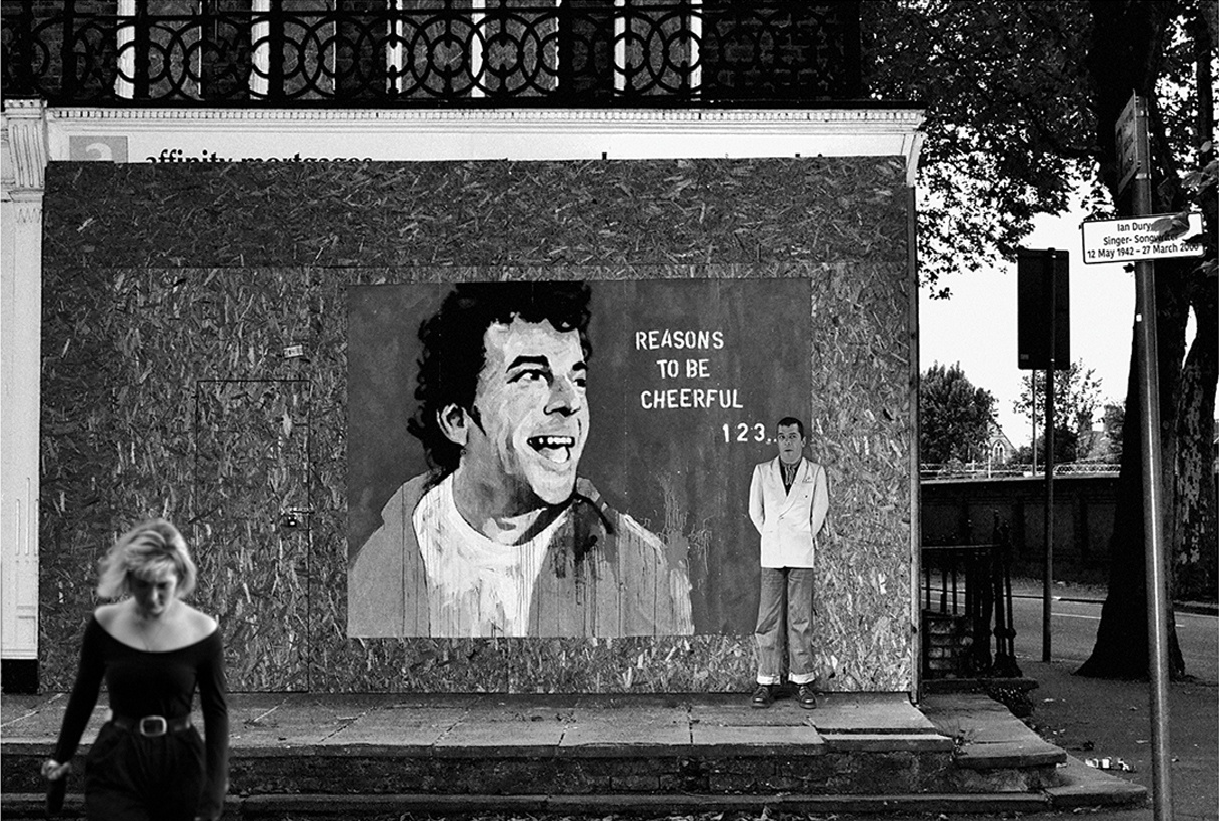Teams helping each other? A shared mission? Dogs and cats living together!? WFT?

Teams helping each other? A shared mission? Dogs and cats living together!? WFT?
A quick round-up of my impressions from the first day of GilbFest 2022.
Every year Tom Gilb invites selected folks from his acquaintance to meet in London for a week, to share ideas relevant to the world of software delivery and etc.
This year, as for the past few years, the event is online rather than in-person. Which suits me as I loathed trawling up to central London every day for a week.
This year’s theme is “Success And Preventing Failure”. Each day is divided into 30 minute slots, one per attendee/speaker, with each slot providing 15 minutes for some kind of presentation and a further 15 minutes for Q&A. Each slot being interspersed with a 20 minute break / opportunity for social interactions.
Overall, day one has been a series of folks sharing anecdotes, opinions and a couple of (brief) case studies. The general tenor has been “I read a book, you might like it too” and “I found this (other person’s) model, you might like it too”. No original work or thoughts so far. Which, as an inventor, innovator, and serial creator myself, I find deeply frustrating. And I hate unsubstantiated opinions, too. All in all, my needs are not getting met. Nor even attended to. C’est la vie.
Also, there’s been a lot of blah-blah-blabbering going on today. Personally, I choose to listen over talk.
– Bob
Attend to her needs*.
*Also applies to other genders.
It’s wayyy easier to provide solutions than to help folks find their own solutions. What are the consequences of this observation?
Voltaire asks us a rhetorical question:
“Is there anyone so wise as to learn by the experience of others?”
~ Voltaire
I’ll not be offering any solutions to this conundrum. I am available help you along the path of finding your own.Do get in touch!
#IANAC (I am not a consultant).
– Bob
Rother, M. (2010). Toyota Kata: Managing People For Continuous Improvement And Superior Results. Mcgraw-Hill.
Marshall, R.W. (2021). Memeology: Surfacing And Reflecting On The Organisation’s Collective Assumptions And Beliefs. [online] leanpub.com. Falling Blossoms (LeanPub). Available at: https://leanpub.com/memeology/ [Accessed 16 Jun 2022].
This is my DeLonghi four slice toaster. It’s been doing sterling service in my kitchen for the past seven years. If you’re looking for a toaster, you could do a lot worse.
Only last week I (finally!) discovered the “bagel” button. Which turns off one element in each slot so as to toast only one side of a bagel, burger bun, etc.
What’s this anything to do with employees?
It strikes me we often treat employees like I have treaded my toaster. We overlook some of the things they can do, really useful things, through familiarity and/or lack of attention. Their talents in some areas go begging because we’re habituated to seeing them in only one light. We succumb to the functional fixedness bias (not limited to objects, methinks).
Aside: FWIW I’ve never used the “defrost” or “reheat” buttons either. I guess my toaster is currently quietly looking for a new, more appreciative boss.
I find it predictable how many folks won’t (can’t?) look even as far as the ends of their noses when forming opinions, or even more significantly, when making decisions.
System 1 (Cf. Kahneman) definitely rules. RIP Curiosity.
We are all powerless to effect change, excepting together.
Yes, change starts with ourselves, but we may see little impact outside of ourselves until we get together to support one another and build a movement to action, to changing our group or community’s collective assumptions and beliefs.
Never doubt that a small group of thoughtful, committed citizens can change the world; indeed, it’s the only thing that ever has.
OTOH folks not needing to see change can carry on in isolation, ploughing their own furrrows, with no need for cooperation, community, or messy human interactions.
– Bob
Kahane, A. and Barnum, J. (2017). Collaborating With The Enemy: How To Work With People You Don’t Agree With Or Like Or Trust. Berrett-Koehler Publishers, Inc.
I’m back on Twitter. Kinda.
Yes I said years ago I wouldn’t be returning. And I have not exactly returned. Judge me as you will.
I’m now one of the folks tweeting on behalf of The Quintessential Group. Twitter handle: @AlienTechGroup
Tweeting about The Group and all things Alien Tech and Quintessential.
BTW Also on LinkedIn – in person and as The Quintessential Group.
Maybe we’ll see you out there?
Write code like the sound of one hand clapping…
Do you want conventional solutions to software delivery, or performant solutions? (You can’t have both).
Hardware design / development has had Muntzing since the 1940’s. How about importing the idea into software design / development?
Could this facilitate the spread of #NoSoftware?
Or are programmers too self-indulgent to cut out much of their crap?

After all these years, I still love coding (as in writing software).
It’s just that it’s tainted by the certainty that there’s so many other more effective ways of adding value and meeting folks’ needs.
Spending time coding feels so… self-indulgent.
Particular structures for communities and groups are pretty much irrelevant. For example, teams.
It’s the relationships within communities or groups that matter.
Although, certain kinds of structure are more friendly towards enabling relationships to emerge and grow.
There are better ways to develop and deliver software. Better than the prevailing ways of approaching such things. How much better? IME – and substantiated by data from i.e. ISBSG – from twice as good through to at least five times as good.
How to access these better ways?
– Bob
Any podcasters/vodcasters out there that would like to feature me on your show? Always delighted to share my insights, experience.
Almost everybody complains about the inanities and insanities of organisational life. The inanities and insanities of their organisation. And yet, nobody seems to want to do anything about it.
Where do these inanities and insanities come from? What are the causes? If we can understand the causes, perhaps we CAN do something about them?
This is an underlying premise of Organisational Psychotherapy. OP posits the cause to be the collective assumptions and beliefs of the organisation. And the remedy? Surfacing those assumptions and beliefs and providing everyone, collectively, with opportunites to reflect on them.
Are you piqued by your organisation’s inanities and insanities? How do they detract from your aims, ambitions and success? Would you be interesting in looking into a remedy?

Some of you dear readers may, entirely reasonably, assume that I mention my books in the hope of increasing sales. However, this just ain’t so.
I mention my books in a vainglorious attempt to effect some positive shift in the world of business. I’ve written many times about my motivation. Specifically, my delight in helping people have a more joyful time in the world of work (in particular, Collaborative Knowledge Work).
I truly believe that Organisational Psychotherapy is a path to saner, more joyful, more humane workplaces. And my book “Quintessence” illustrates and maps out what a saner, more joyful organisation looks like and works like, in detail.
Maybe you share my enthusiasm for change, and for seeing things improve. Maybe you’re content with – or at least resigned to – the status quo.
In any case, I’d hate for my enthusiasm to be a source of frustration or angst for you.
On the other hand, I’d be delighted if through reading one or more of my books – or even blog posts or white papers – you might find a different perspective on what ails you, and new, more effective ways to meet folks’ needs, including your own.
– Bob

Marshall, R.W. (2021). Quintessence: An Acme for Software Development Organisations. [online] leanpub.com. Falling Blossoms (LeanPub). Available at: https://leanpub.com/quintessence/ [Accessed 16 Jun 2022].
Marshall, R.W. (2021). Memeology: Surfacing And Reflecting On The Organisation’s Collective Assumptions And Beliefs. [online] leanpub.com. Falling Blossoms (LeanPub). Available at: https://leanpub.com/memeology/ [Accessed 16 Jun 2022].
Marshall, R.W. (2018). Hearts over Diamonds: Serving Business and Society Through Organisational Psychotherapy. [online] leanpub.com. Falling Blossoms (LeanPub). Available at: https://leanpub.com/heartsoverdiamonds/ [Accessed 16 Jun 2022].
Marshall, R.W. (2021). Organisational Psychotherapy Bundle 1. [online] Leanpub. Available at: https://leanpub.com/b/organisationalpsychotherapybundle1 [Accessed 16 Jun. 2022].
http://www.youtube.com. (n.d.). Ian Dury and The Blockheads – Reasons To Be Cheerful, Pt. 3 (Official Lyrics Video). [online] Available at: https://www.youtube.com/watch?v=1injh4-n1jY&ab_channel=IanDury&TheBlockheads [Accessed 16 Jun. 2022].
Have you read “Quintessence” yet? Hundreds of others have, and liked it.
– Bob
Marshall, R.W. (2021). Quintessence: An Acme for Software Development Organisations. [online] leanpub.com. Falling Blossoms (LeanPub). Available at: https://leanpub.com/quintessence/ [Accessed 15 Jun 2022].
Marshall, R.W. (2021). Memeology: Surfacing And Reflecting On The Organisation’s Collective Assumptions And Beliefs. [online] leanpub.com. Falling Blossoms (LeanPub). Available at: https://leanpub.com/memeology/ [Accessed 15 Jun 2022].
Marshall, R.W. (2018). Hearts over Diamonds: Serving Business and Society Through Organisational Psychotherapy. [online] leanpub.com. Falling Blossoms (LeanPub). Available at: https://leanpub.com/heartsoverdiamonds/ [Accessed 15 Jun 2022].
Marshall, R.W. (2021). Organisational Psychotherapy Bundle 1. [online] Leanpub. Available at: https://leanpub.com/b/organisationalpsychotherapybundle1 [Accessed 15 Jun. 2022].